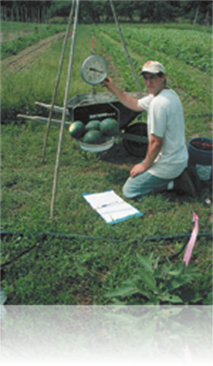All Resources
Journal Article
Adaptation—the modification of an organism or its parts—is a basic principle of evolution. This hands-on simulation helps students understand adaptations by examining the diversity of bird beaks....
Journal Article
In this activity, students are challenged to see how problem solving can be applied to all aspects of their lives. Students learn how to separate and control variables, identify relationships, and make predictions in this pendulum activity....
Journal Article
Editor's Roundtable: Real testing, real learning
This article features activities based on hands-on learning and alternative assessment. As science and technology become more important teachers need to make sure students are prepared for the future by understanding not just science facts, but also ...
Journal Article
Weather Detectives: Searching for Cool Clues
It is a well-kept secret that weather is nature's way of redistributing energy and converting it to heat. There are many opportunities to teach these concepts—all it takes is a little detective work to recognize them. To teach these concepts, the a...
Journal Article
Thought for Food: Students learn science with healthy eating
This article features activities used in a schoolwide science unit on nutrition. ...
Journal Article
Scope on the Skies: January Blues
This column focuses on astronomy throughout the year. This month’s issue explains the occurrence of a second full moon within a month—this January happens to be such a month. ...
Journal Article
Web of Life Connections; Learning about the interdependence of life
This article offers suggestions for helping students understand the interdependence of life through firsthand experiences, by focusing on something familiar—their family, and by playing "what if" games to open up an array of possible scenarios. It ...
Journal Article
To achieve a truly multicultural curriculum, the entire composition of lessons must be re-envisioned to embrace the global community. Principles are recommended for designing and implementing culturally responsive middle school science programs. A mu...
Journal Article
1948: The New Imperative for Science Literacy
This paper was presented by the author at the February 1998 Meeting of the American Association for the Advancement of Science (AAAS)....
Journal Article
Small-scale sustainable agriculture is a rich, vibrant arena for teaching and learning. This article features a farm used to teach students in a course on environmental education. Farm research is relatively easy to plan and conduct, and it provides ...
Journal Article
Favorite Demonstration: Floating Spinach Disks—An Uplifting Demonstration of Photosynthesis
This exercise is ideal for studying the overall process of photosynthesis. It employs disks punched out of a spinach leaf with a hole-puncher. The flexible experimental design provides the opportunity for open-ended, student-directed original inquiry...
Journal Article
This article describes how a Botany Laboratory Inquiry Project (BLIP) can be included in a general botany laboratory. The stated purpose of the BLIP component is to provide a student with the opportunity to select a hypothesis, develop a logical expe...
Journal Article
This paper demonstrates how a course in molecular genetics can use problem-based activities and cooperative group strategies to support students learning the necessary skills for critical thinking, The course format can be implemented in most science...






